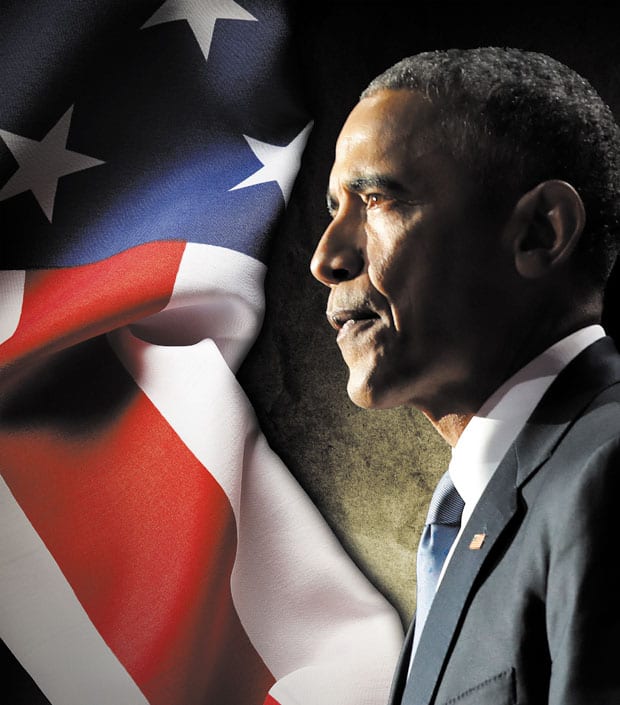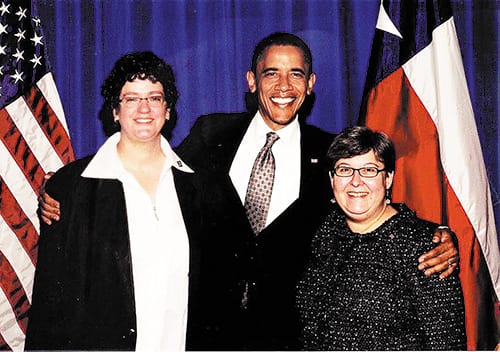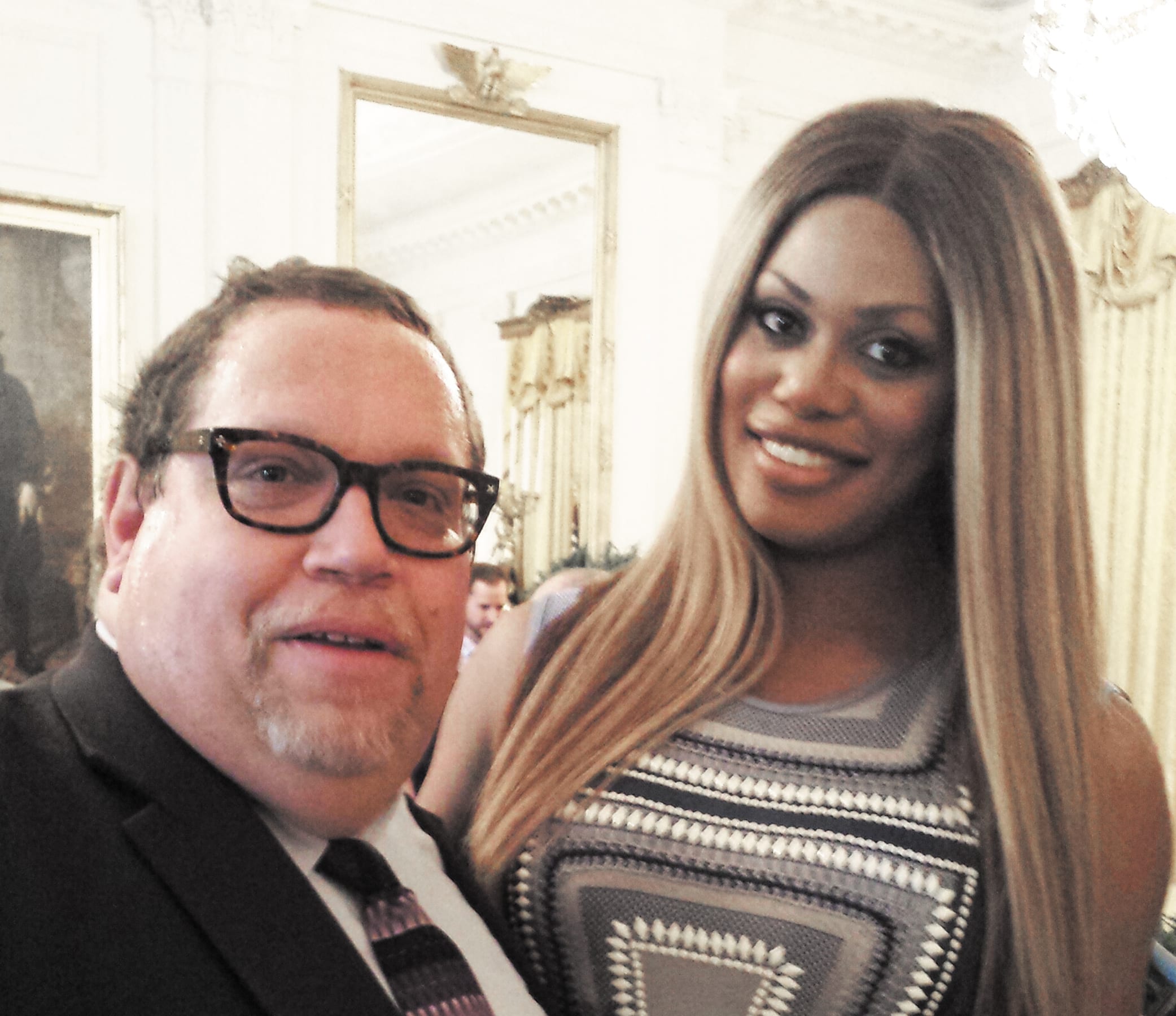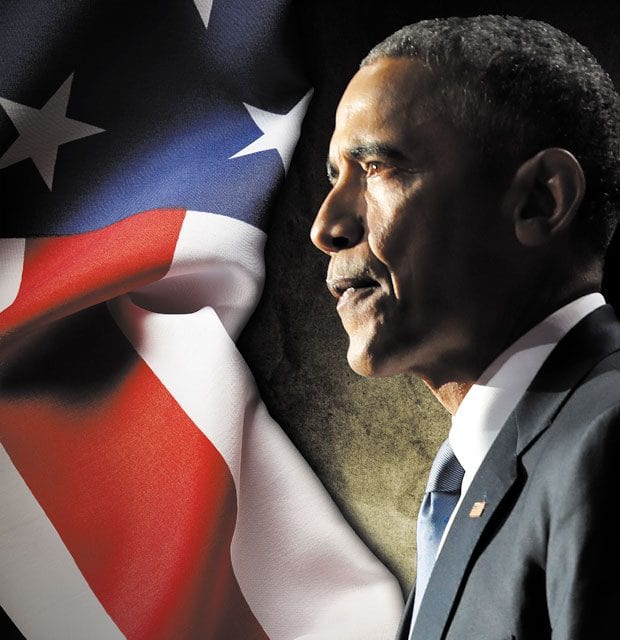North Texas LGBT community members talk about working with the country’s most LGBT-friendly First Family ever

DAVID TAFFET | Senior Staff Writer
Patti Fink came home from the 2004 Democratic Convention, where she was a Howard Dean delegate, raving about an up-and-coming senator from Illinois. Her wife, Erin Moore, heard the keynote speech Barack Obama delivered on television, but she saw him in person a year later when he appeared at a Democratic Party event in Lee Park, with Sens. Harry Reid and Joe Biden.
“I remember thinking he was inspirational,” Moore said. “He said things Democrats hadn’t heard for awhile.”
She was so impressed with Obama that as the 2008 election approached, Moore worked to become an Obama delegate to the Democratic convention. But it wasn’t until the 2012 election approached that she spoke to the president, at a fundraising reception in Dallas.
Moore said the line was long and the president’s handlers were pressing him to move quickly, but she got one line in as they shook hands: “Thank you for all the work you’ve done for our community.”
He replied, “I couldn’t have done anything else.”
Moore said the president even leaned down so Fink, who is much shorter, would be in the picture with them.
During the primaries that year, Moore served on the Texas Democratic Party’s platform committee and wrote marriage equality into the platform. The Obama campaign called Moore and asked her to serve on the national platform committee where she then helped put that plank into the national Democratic platform.
Describing the president, Moore said she felt more than just listening to the LGBT community, Barack Obama embraced it.

President Obama poses with Erin Moore and Patti Fink at a Dallas fundraiser, top. Rafael McDonnell met Laverne Cox at Pride 2014 at the White House, bottom.
“We weren’t just a special interest group,” she said. “We were a part of this nation for the first time.”
‘Most inspirational’
Don Maison, CEO of AIDS Services of Dallas, called Obama “the most inspirational president in my lifetime.”
Maison represented the National AIDS Housing Coalition when he attended a White House conference to set a national AIDS policy, something the U.S. never had before.
“It was clear Obama was committed to creating a strategy to address AIDS nationally,” Maison said. “He wanted something solid and in writing and he has been updating it ever since.”
Obama showed an interest not just in AIDS policy, but in a wide variety of issues affecting the LGBT community.
Cannon Flowers, founder of Coalition for Aging LGBT, said he’s thought quite a bit about what he’ll miss when the Obamas leave the White House.
Flowers visited the White House three times during the Obama administration — once as an advocate for same-sex partner immigration equality and twice to bring awareness to and discuss services for members of the LGBT community who are aging. The most obvious change that Flowers sees is access.
“We have enjoyed eight years of unprecedented access to the White House,” Flowers said. “I will miss the ability to simply call the White House Office of Public Engagement for a range of LGBT issues and concerns around immigration and aging.”
He said that after eight years of advancement, the community’s progress will now be tested.
“I believe this testing is a necessary part of forging and galvanizing permanent change in this country,” he said.
“While the testing can be frightening, it is absolutely required.”
‘His full attention’
For Waylon Tate, the issue was education. Tate owns a public relations firm, and while he was leading the local chapter of GLSEN — the Gay Lesbian Straight Education Network — he was invited to the White House several times, working with White House LGBT liaison Gautam Raghavan on two education bills that were pending in Congress.
Tate said that when talking to the president, you have his full attention: “The president looks you dead in the eye.”
He said Obama is graceful, astute, composed and incredibly friendly, and Tate has high praise for the first lady as well.
“All heads turn when she walks in the room,” he said. “She’s down to earth, witty and quick on her feet.”
Tate said his visits to the Obama White House were like walking in to his generation’s Camelot, and that the others who worked on that school legislation talked about their experience working with administration.
“We talked about how incredibly lucky we were to be in that place and time,” he said.
 Celebrating Pride
Celebrating PrideWhile some leaders in the community remember the Obamas for their concern on issues, Resource Center Communications and Advocacy Manager Rafael McDonnell was invited to the White House for a celebration — Pride 2014.
Recalling the event, McDonnell said the timing was interesting — a year after the Windsor decision, which struck down parts of the Defense of Marriage Act, and a year before the Obergefell decision, which extended marriage equality nationally.
McDonnell said it was hard to describe the rush of emotion as he entered the White House for a Pride event. After passing through security, he was greeted by a Marine guard who said, “Welcome to the White House, sir.”
He said hearing an Illinois couple speaking in the White House about their legal marriage — a year before marriage became legal in Texas — was very emotional.
McDonnell noted the significance of the Pride event being held in the historic East Room where President Lyndon Johnson signed the Civil Rights bill into law, where Lincoln’s body laid in state and where Abigail Adams hung the family’s laundry before the White House was completed.
Obama gave attendees an official copy of the Pride Month proclamation he had signed, which McDonnell framed and now hangs in his office.
…………………
Packed up to go
Josh Lederman | Associated Press
Twitter.com/JoshLedermanAP
WASHINGTON — They line up near the Oval Office, down the hallway toward the Cabinet Room, trailed by their spouses and young kids in their finest clothes. When it’s their turn, the White House staffers enter for a few private moments with President Barack Obama, a photo and a farewell hug from the boss.
There was a mass exodus underway this week at the White House. As Obama held his last news conference Wednesday, Jan. 18, his staff was busy packing up their offices and turning in their BlackBerrys. For some who joined Obama’s team right out of college, it’s the end of the only professional experience they’ve ever known.
The finals days of any president’s administration are always bittersweet and heavy on nostalgia, as officials face the transition back to being “civilians” who will no longer have their hands on the nation’s levers of power. Yet there’s added sadness this time for Obama staffers who are mostly horrified by the incoming administration of President-elect Donald Trump.
“You’re always aware that it’s a special privilege to work there and not something to take for granted,” said Nate Lowentheil, who worked on Obama’s National Economic Council for the last three years. “It’s particularly hard knowing the next wave of people coming are going to be working to reverse the things you were working to advance until your very last hour.”
There were tears on the faces of some White House aides on Tuesday, Jan. 17, as press secretary Josh Earnest appeared in the James S. Brady Press Briefing Room for his final press briefing — his 354th as press secretary, Earnest said. Even former staffers were invited to return to the White House to witness Earnest’s last round of jousting with reporters.
“I’m going to miss it,” Earnest said. “It will take some getting used to seeing somebody else standing up here doing it.
“Or not,” he added, in a nod to the prospect that Trump’s team may make changes to the daily briefing.
In between closing out final projects and typing up reports on the work they’ve done, White House staffers were packing away their knickknacks, coffeemakers and photos. The boxes stacked up in offices already vacated by staffers who had departed over the past few weeks.
By Thursday night, all had to be gone to make way for Trump’s team. Before they left the building for the final time, they were all prepared to go through a checklist that completed their formal separation from the White House: cell phones handed in, computers locked and papers properly filed to be archived. The last step, aides said, is the hardest: handing in the badge that provides access to the complex day or night.
“It’s been an honor to be a part of it. And yeah, I’m interested in what happens here. And I’ll continue to follow it,” Earnest said. “But I will be relieved to not have the burden to follow it as closely as this job has required over the last two-and-a-half years.”
A few White House staffers have found new jobs already, but most are taking some time off to ponder next steps.
Some are going home to visit family they haven’t spent much time with in years. One said he was spending two months driving across the country, unsure of what he’d do next. Others are taking long vacations to places like New Zealand and Iceland, unencumbered by the need to constantly check in with the office.
“This is the only world I’ve known,” said Clay Dumas, who took time off from college to work for Obama’s 2008 campaign, then interned at the White House before being hired four years ago. He said he was searching for a job that would allow him to continue advancing values and policies he worked on in the White House. “Whatever I do next will be a huge continuation of that.”
This article appeared in the Dallas Voice print edition January 20, 2017.
















